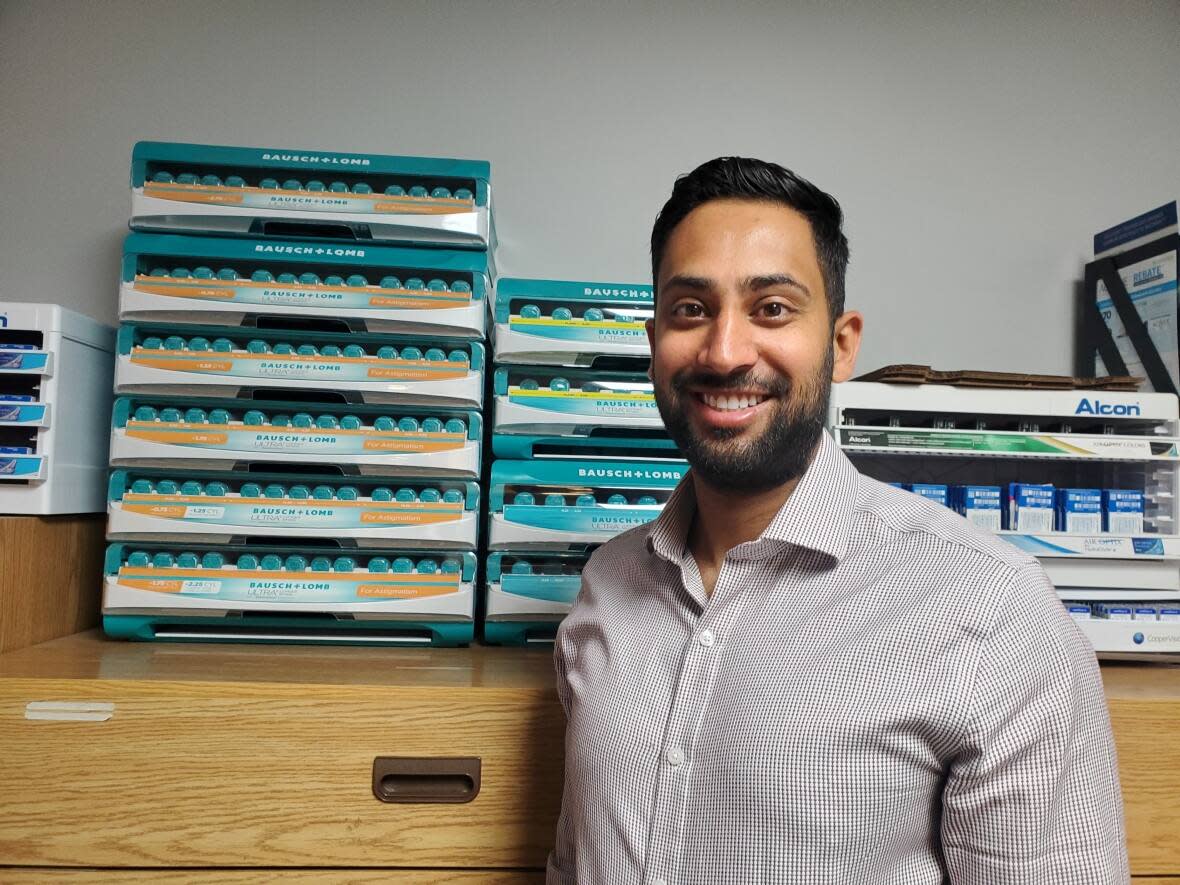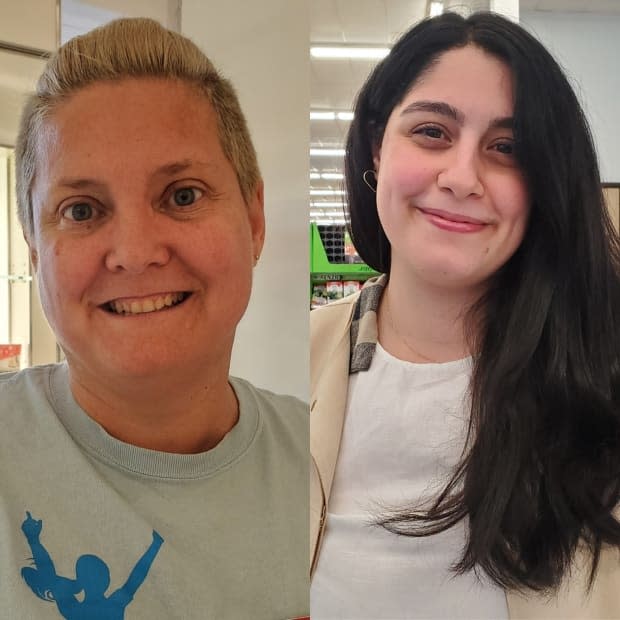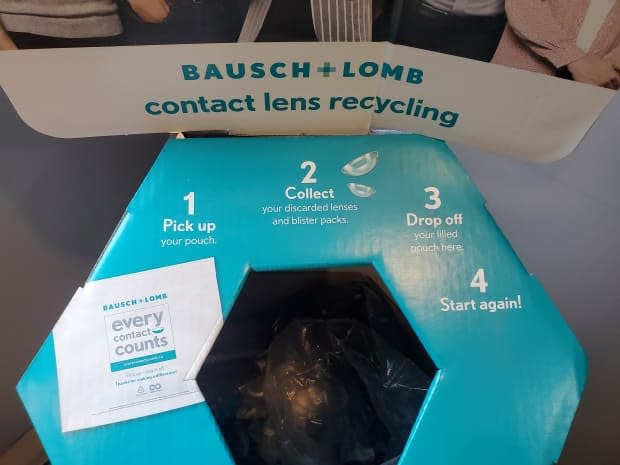Those tiny contact lenses can create a big waste problem. Here's a way to focus on changing that

Our planet is changing. So is our journalism. This story is part of Our Changing Planet, a CBC News initiative to show and explain the effects of climate change and what is being done about it.
Ginger Merpaw of London, Ont., has been wearing contact lenses for nearly 40 years and had no idea that micro plastics from them end up in waterways and landfills.
To minimize the big impact that these tiny lenses can have on the environment, hundreds of optometry clinics across Canada are taking part in a special program that aims to get them and their packaging recycled.
Tthe Bausch+ Lomb Every Contact Counts Recycling Program encourages people to drop off their contacts in a bag to a participating clinic for them to be packaged for recycling.
"You recycle plastics and things like that but I never guessed you could recycle contacts. When I take them out I put them in the garbage can, so I just assumed that they biodegrade normally and never thought anything of it," Merpaw said.
She's not the only one, said Dr. Riyad Khamis of Highbury-Huron Optometry in London.
Khamis said about 20 per cent of lens wearers either flush them down the toilet or throw them in the trash. His clinic is one of 250 locations in Ontario participating in the recycling program.
"Contact lenses are sometimes overlooked in terms of a recycling aspect, so this is a great opportunity to help the environment," he said.
Over 290 million contacts end up in landfills every year, according to TerraCycle, a recycling company leading the project. They said the totals could rise as the number of daily contact wearers increases.
"Something so small adds up over the span of a year. If you have daily lenses, you are disposing of 365 pairs," said Wendy Sherman, senior accounts manager withTerraCycle, which also partners with other consumer product companies, retailers and cities for recycling efforts.
"Contact lenses are such a vital part to many people, and when it's something that's so routine, you oftentimes forget that this can have an impact on the environment."
The program, which launched two years ago, has already collected one million contact lenses and their packaging.

'It's for our environment'
Hoson Kablawi has worn daily contacts for more than 10 years. She was shocked to hear they can be recycled. She usually disposes of them in her compost.
"Contacts aren't going anywhere. Not everyone's comfortable getting Lasik surgery, and not everyone wants to wear glasses, especially with masks," she said. "With contacts, the demand will keep going up and if we can do something about minimizing the waste, we should."
Sherman said recycling directly impacts what ends up in landfills.
"This [landfills] is where lots of methane is produced, which is a lot more potent than carbon dioxide, so by eliminating some aspects of waste, you're minimizing the impact it can have."

The lenses themselves — along with their blister packs, foils, and cases — can all be recycled.
Both Kablawi and Merpaw, along with her daughters, who also wear contacts, will now start gathering them up in a container to drop them off to their local optometrists, they said.
"It's our environment. It's a place where we live and we have to take care of it, and if this is one more step in the right direction toward making our planet healthier, I'm willing to do that," Merpaw added.
Information on the closest participating optometry clinic to you, throughout Canada, can be found on TerraCycle's website


